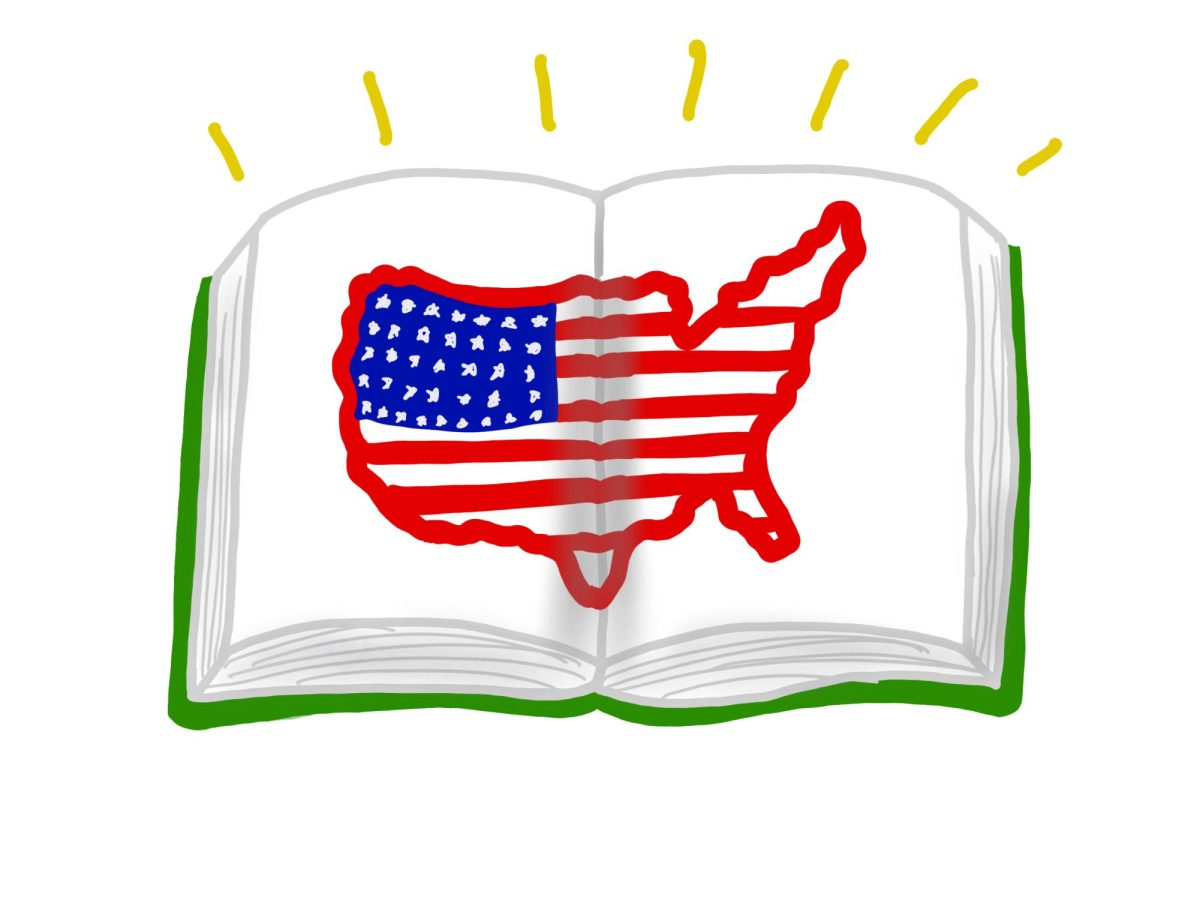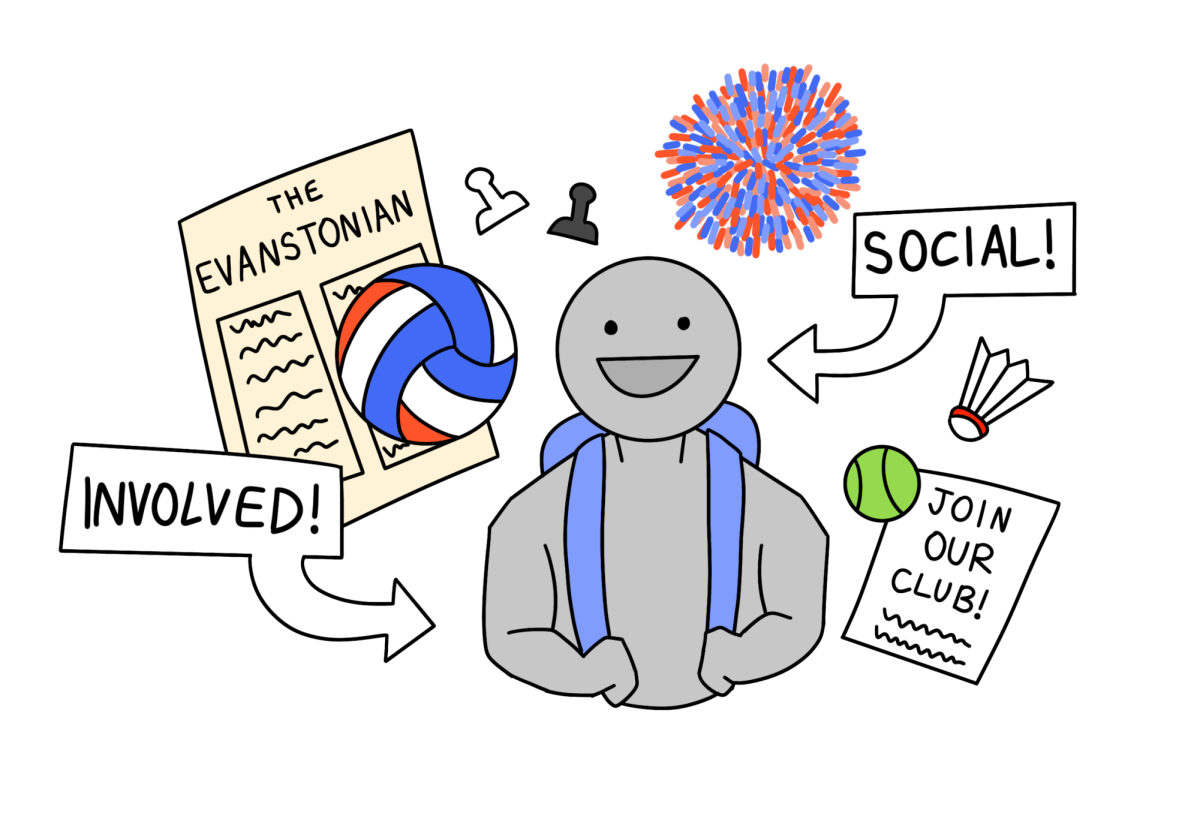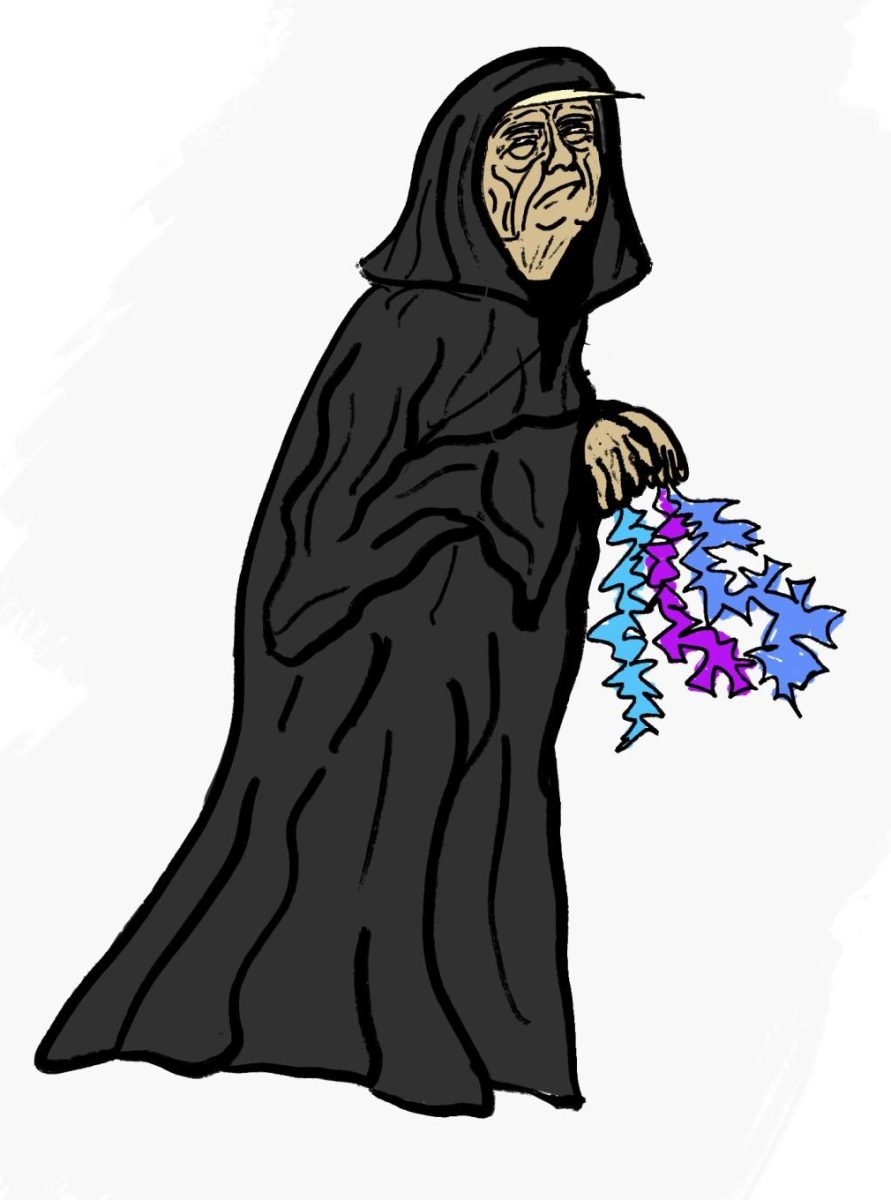The past few weeks have been of great importance to ETHS students. In addition to attending their regularly scheduled classes and extracurriculars, students have met with their counselors to determine what classes they will take for their subsequent year of high school. As students browse the hundreds of classes that ETHS has to offer, they may begin to notice a regrettable pattern.
While courses such as American Legal Systems, AP U.S. Government & Politics, Civics, and U.S. History offer students a thorough understanding of American history, politics, and current events, courses that discuss other parts of the world are glaringly omitted. The only classes to do so are Humanities History, AP European History, and AP African-American Studies, and while these offerings are fine in and of themselves, they leave a lot to be desired as the only world history options at ETHS.
AP European History and AP African-American Studies, which are reserved for seniors and upperclassmen respectively, are elective classes, meaning that only a small minority of ETHS students will take them. Humanities History, an obligatory class for all freshmen students, focuses primarily on historical events, largely ignoring current events. While a thorough understanding of history is indispensable, it should exist in tandem with a knowledge of current events. Moreover, much of the Humanities History course is occupied by lengthy projects in collaboration with students’ Humanities English class. During these projects, students may not necessarily be studying history; thus, the Humanities History course struggles to cover all aspects of world history, giving students an abridged, incomplete understanding of the topics in which they are studying.
The truth is that condensing thousands of years of human history, spanning many different continents and time periods, into a single class is bound to fail, especially when that class is an entry-level freshman level course.
There are many options for ETHS to consider if they want to diversify their curriculum. For example, the College Board already offers AP World History, AP Human Geography, and AP Comparative Government & Politics, three courses mysteriously absent at ETHS. These classes, traditionally seen as being more straightforward than other AP’s, could provide a wider variety of world history options for underclassmen at the AP level. Introducing these classes would address the lack of non-American focused history classes, as well as increase AP accessibility for underclassmen in a school where AP’s are mostly taken by upperclassmen.
The abundance of American history within ETHS’ curriculum has not gone unnoticed by its students. Elaine Harris-Stapleton, a sophomore at ETHS, laments the absence of world history in her courses.
“The only class where we study history outside of the United States is Humanities History. Other than that, it’s all [American history]. I think that it would be beneficial for students at ETHS to learn more about the [rest of the] world, especially pertaining to [current events], as Humanities History focuses more on what happened in the past. And though [the past] is important, so [that] we can learn from our mistakes, it is also important to focus on what is happening [right now],” said Harris-Stapleton.
As it turns out, there was a time when ETHS had a wider selection of internationally oriented courses. Prior to a 2015 Illinois law which required all high-school students to take a semester-long class focusing on American government, ETHS used to offer a smorgasbord of semester-long “global studies” classes. These classes, which included, but were not limited to, African, Russian, and Middle Eastern History, would be taken by students during their sophomore year. ETHS’ Global Studies program was eventually replaced with the year-long Civics course, however.
Civics and AP Psychology teacher Sabrina Ehmke, who once instructed the African History segment of the Global Studies course, stresses the importance of a curriculum which is relevant and representative of as many people as possible.
“We are an ever changing world. If we don’t make [changes to our curriculum], then we will be leaving people out,” says Ehmke.
ETHS’ meager offerings when it comes to world history, even in comparison to neighboring high schools, are not only evocative of the vast amounts of Americentirism which is present within our society, but completely contrary to ETHS’ commitment to representing its diverse student body. Indeed, Americans are seen by foreigners as being woefully ignorant to the plights or triumphs of other countries, too focused on our perceived preeminence to bother with subordinate countries. Is this really what we stand for as a nation? Is this really a phenomenon that ETHS is helping to cultivate and perpetuate? My concerns are mirrored by Ehmke.
“It’s this idea of American exceptionalism which has run through our society for centuries. On a general level, the United States tends to see itself as being very different from other countries, and I wonder how much schools are responsible for that. One of my goals [as a teacher] is to show students that [our topics of study] are happening out there, and not just in [the classroom]. [Students] have a responsibility to learn this, and it is my responsibility to give [them] the tools to learn it.”
Understanding American history and government is of the utmost importance, and among our many civic responsibilities. With that being said, this does not justify the unceremonious dismissal of world history and global politics. It pains me that ETHS, with all its talks of diversity and equity, continues to uphold the centuries-old tradition of Americentrism in its curriculums. At the end of the day, while we may all be American citizens, we too are citizens of the planet that we collectively inhabit. Thus, we must seek to understand our entire world, for we are citizens of Earth as much as we are citizens of the United States.






Sam Kemeny • Feb 5, 2025 at 11:26 pm
Glad the Opinion team is putting effort towards this kind of stuff! It adds way more credibility than headlines like “Super Bowl Sunday should be a holiday” …